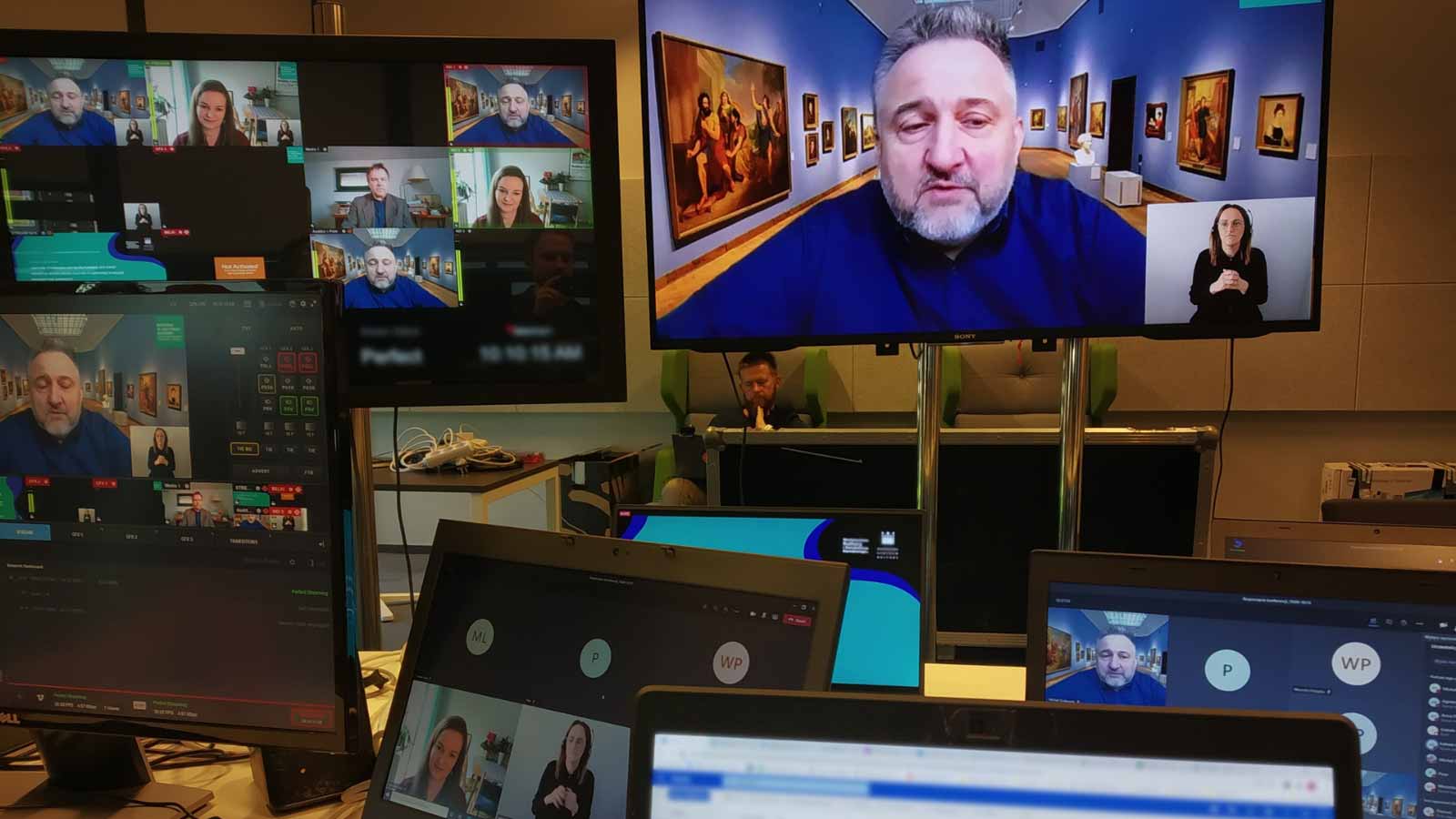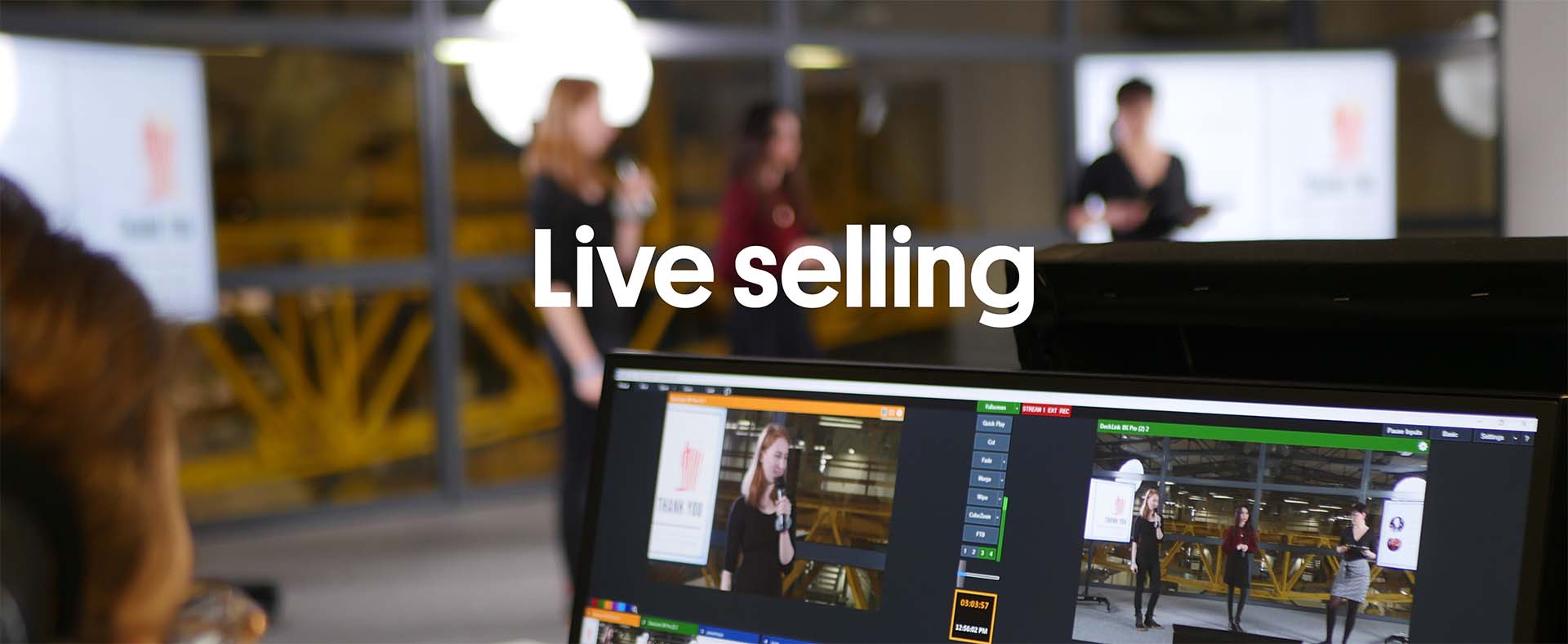
It has already been found in a recent report that 69% of people now prefer to participate in remote conferences*, and this trend looks set to increase. In this article, we will summarise the key points to bear in mind when organising a virtual scientific conference, which is an event with its very own specific character, particularly in terms of the focus on content and knowledge.
How to organise a successful virtual scientific conference?
A scientific conference is an event that you can prepare for well in advance. The key questions to look at initially include which topics are to be raised, what is most important for the invited guests, and what the purpose of the event is. Establishing this is already half the battle. This part of the preparations usually takes place inside the organisation itself, in a close group of people working on the programme. You are the best specialists when it comes to your experts and choosing the key topics that are hot at the time.
What is the second part? Broadly speaking, it’s the actual organisation of the event. Three out of four respondents in favour of online conferences believe that they should last for one or two days. Two-day conferences are the most desirable for almost half of the respondents.*
Now to the point! You are just 10 steps away from staging a successful online conference:
1. Effective and planned communication
First of all, it is vital to have effective communication with the participants, both individually and also with the target group as a whole. In this respect, we always recommend a plan that involves having all written communication ready at least 30 days before the conference, with graphics prepared for the media, and communication for social media with at least one post a week.
In addition, it is also worth considering a paid campaign that can support ticket sales or support the conference in terms of promotion.
Protect yourself against the fact that many people who sign up for free online events do not subsequently attend them. Unlike with traditional on-site conferences, it is much easier for participants to decide simply not to show up at an online event as they won’t have wasted money on a plane or train ticket or a hotel. It is worth taking this into account when planning the attractions and not overbooking them in advance for a set number of people. If you plan to send gift packs, which is a very good practice, do so after the conference to those who actually attended. This will allow you to optimise the costs of the event.
Having the communication planned out for all stages of the event – before, during and after – will then allow you to focus on other important elements of the conference.
2. Simple registration with data that will be useful to you later
This is an important process for most conferences. Both the tools we use and the data we obtain in the registration process are important. Registration forms can be both extensive, allowing you to obtain a lot of information about participants and their needs, and also very simple in order to facilitate quick and efficient sign-up. Registration should have a privacy policy and participants should give all the necessary consents (cookies, GDPR and possibly marketing) when submitting their data. It can be based on a standard website or a service embedded on Hubspot that allows you to automatically collect participants' consent and conduct communication with mailshots.

3. An intuitive platform that will meet the objectives of the conference
There are currently a lot of them on the market (see our report "The most important event platforms"), so you should think about which functionalities are most important to you: live chat, parallel sessions, an online poster session, or maybe networking? Also take into account the ease with which your visitors will be able to navigate around the platform.
4. Comprehensive management of the conference organisation
For any conference, managing the preparations can be very time-consuming. Contacting and meeting the organising committee and decision-makers, making the programme arrangements with the speakers, setting up a poster session – all these elements, both at a national and international level, require structured processes and tools to work efficiently. We recommend proven solutions such as Microsoft Teams or Monday, which allow you to create the schedule, manage all the communication, store files, and plan rehearsals, etc.
5. Professional technical and organisational support
During the conference, having a person dedicated to technical support will be useful. There are many unexpected surprises that can occur during live events, such as participants not being able to connect via the access link, or the speakers having to deal with uncooperative technology, despite the fact that everything was working perfectly during the rehearsals. In such situations, the help of a professional who can calmly solve a technical issue will be invaluable. For the safety of the entire project, it is also worth ensuring the presence on the team of someone who knows the scenario of the event very well, who will be able to tell you what is happening next, what should be displayed, and which jingle should be broadcast at a particular moment.

6. Rehearsals with the speakers
Many of us use the technologies used to run online events on a daily basis, both at home and at work. However, it is worth preparing in advance how we look in front of the camera (even if we are in the home office). Organising a short rehearsal with each speaker, when the internet connection, light, sound and camera can all be tested, will make it easier when the time comes for them to perform live. It could be helpful to advise the speakers on what to wear, how to sit and how to set the background (which is already standard in most online meeting platforms).
A scientific conference involves speakers presenting their own materials, and most important theses and research results, which undoubtedly sets it apart from other online events. During the rehearsals, it is good to check the technical quality of the materials – sometimes certain things may need to be enlarged, or the colour of the font changed. Links are often given during the presentations, so it helps to have them at hand so they can be shared simultaneously in the event chat. Backup is also an important issue, and the person responsible for the preparation and running of the live broadcast should have all the files available.
7. The hosts
Select the host for the meeting. Ideally, it should be someone who is familiar with the topic, but not involved in the work of the organising committee. As organisers, you will get more out of the conference by fully participating in online networking (yes, it works! See our webinar "Involving participants in online events"). On the other hand, the host should also focus heavily on the scenario and on maintaining the dynamics of the meeting.
8. Content marketing
Every online scientific conference is a trove of knowledge – both orally, in terms of the information provided by the speakers during their speeches, and in the form of multimedia presentations, videos, e-books, publications or articles.
It is important to remember to send the necessary materials to the participants after the event. Not only will this help to consolidate their knowledge, but also, if necessary, they will be able to turn to a specific person for help. You can add information about your research unit or institution to the pdfs, or enrich the profiles of the speakers in order to build up theirimage as experts in their field.
These types of materials can also be used for marketing purposes and to promote the concepts, ideas and theses that were shared during the conference. They will also be useful as summary materials, and for promoting the next edition of the event. Their lifespan is much longer than that of the live performance itself.
9. Zero-emissions
A virtual scientific conference is an eco-friendly solution and a chance to stand out from the competition. Organising an event in the online world is much more environmentally friendly than the traditional, on-site form. This means fewer printed materials, less waste, a smaller carbon footprint and fewer CO2 emissions into the atmosphere. It is worth using this fact in both the CSR and PR activities.
10. Conference guests
The online mode allows you to confirm the conference’s special guests at a later point than with a traditional format. You could even consider a registration vote where people signing up can decide who they'd most like to see and hear at the event.
Planning the event well in advance and building a team of experienced organisers is the key to success for your conference. Best of luck!
If you feel that some of the aspects mentioned above may be difficult for you, it’s worth thinking about getting the support of an external agency that will ensure a sense of security at all stages of the event and, together with you, will make sure that your online scientific conference runs perfectly.
* Data from the report on the effects of the pandemic titled Remote Conference in the World of Science, prepared by the National Information Processing Institute in Poland.





